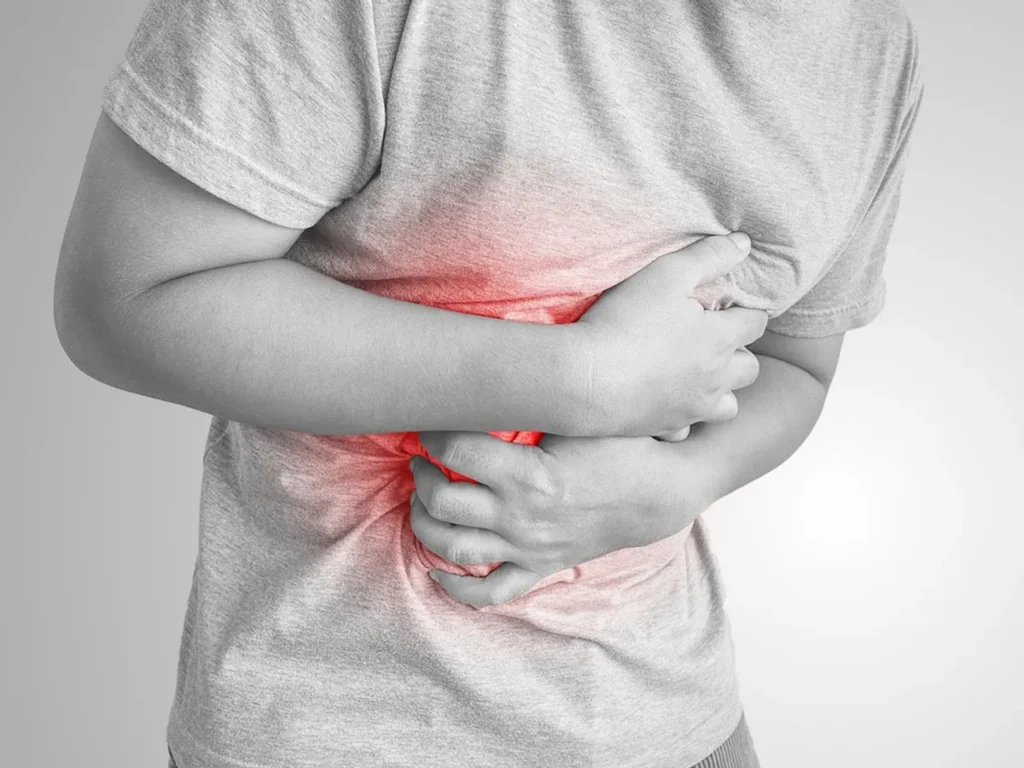Bloating, acidity (that burning sensation), and indigestion are among the most common digestive troubles people deal with.
If these symptoms show up once in a while and settle on their own, there’s usually no need to worry—it’s a normal reaction of the digestive system from time to time.
But for many people, these problems stick around year-round, disrupting daily life and leading to ongoing discomfort and frustration.
In this article, we’ll look at:
-
Why gas, acidity, and indigestion happen
-
The common triggers behind them
-
And most importantly, a simple Ayurvedic drink for digestion that can offer natural, long-term relief
Let’s begin by understanding what causes gas in the first place and how it impacts your stomach and intestines.
Gas is formed in our stomach in Two ways.
- Gas goes into our stomach along with our food. When we eat food, we also swallow a lot of air, this air goes into our stomach and turns into gas.
- After we eat food, when our food is digested, the chemical processing that happens in the food during digestion also releases gases which fill our stomach and produce gas.
If you have excess gas formation, you should always eat slowly and chew well.
If you eat food too quickly or do not chew for long, then because of that you swallow excess air while eating, this causes your stomach to fill with gas.
Apart from this, there are some food items which get digested in our stomach and as a result of that excess gas is released, so you should avoid such things also.
For example, we all eat apple and consider it very well. No doubt, it is very good. But, if you have too much gas formation then you should not eat sir because it increases the chances of gas formation inside you.
Apart from this, peas should not be eaten by those people who have gas problems; they should avoid eating cabbage, cabbage leaves, broccoli, urad dal, arhar dal, too much fried things, market fried food, processed food, too much oily food, too much sugary food i.e. sweets etc.
A very common mistake which all of us make is that when gas is formed we say give me Sprite, Cola. Basically all the fizzy drinks which contain gas and this soda, all these things increase the gas in our stomach.
Note: We are not talking about acidity, it is a separate thing, we are talking about gas, if you have complaint of gas then you should avoid fizzy drinks.
Here’s a rephrased version of your content in a smooth, reader-friendly tone:
Understanding Acidity: Causes and Prevention
Let’s talk about acidity, a problem many of us face. But before we jump to solutions, it’s important to understand that acid in the stomach is actually a natural and necessary part of digestion.
Our stomach produces acid to help break down the food we eat—especially proteins. Without this acid, digestion simply wouldn’t happen. So in normal amounts, stomach acid is not only helpful, it’s essential.

When Does Acidity Become a Problem?
Trouble begins when your body starts producing too much acid. This excess acid can irritate the lining of your stomach and lead to symptoms like:
-
Burning sensation in the chest (especially after eating)
-
Stomach pain
-
Bloating or discomfort
You might wonder, if this acid is strong enough to break down meat, why doesn’t it harm our stomach?
Good question!
The inside of our stomach is lined with a protective coating called the mucus membrane. This acts like a shield, preventing the acid from damaging the stomach walls.
But when acid levels rise too much, this protective layer can wear down. Over time, this can lead to inflammation, pain, and in more serious cases—ulcers (painful sores inside the stomach where the protective layer has been eroded).
Common Triggers of Acidity
If you’re prone to acidity, be mindful of the following habits and foods:
-
Excess tea and coffee: Both can trigger acid production, especially in large amounts
-
Alcohol: A common cause of stomach irritation and acid buildup
-
Spicy foods and fresh green chillies: These can aggravate the stomach lining
-
Oily and heavily fried foods
-
Lying down immediately after meals: This habit makes it easier for acid to travel upward, causing heartburn
- Stress: Stress is a very big factor that causes acidity in you.
Simple Tips to Manage Acidity
-
Avoid lying down right after eating — take a gentle walk for 10–15 minutes instead
-
Limit caffeine and spicy food if you’re sensitive
-
Eat smaller meals more frequently instead of heavy meals
-
Stay hydrated, but don’t overdo water during meals
- Destress yourself, You should live in an environment where you are not stressed. If you do regular exercise or meditation, then that also helps you a lot in reducing stress.
Taking small steps in your daily routine can go a long way in keeping acidity under control.

Indigestion: Causes, Symptoms & a Natural Home Remedy
Indigestion occurs when your stomach isn’t able to properly break down the food you eat. As a result, the food lingers in your stomach longer than it should, leading to discomfort and issues like:
-
Acidity
-
Gas
-
Bitter burps or belching (Snoring)
-
Difficulty swallowing
-
Nausea or the urge to vomit
Many of the causes we’ve already discussed—like overeating, consuming too much oily or heavy food, and eating gas-producing items—also play a major role in indigestion.

Why Antacids Aren’t a Long-Term Fix
Most people reach for antacids to relieve symptoms like gas, acidity, or indigestion. These medications work by reducing stomach acid, and yes—they often provide quick relief.
But here’s the catch: they aren’t a long-term solution.
Using antacids frequently or for extended periods can actually weaken your digestion over time and may lead to dependency or side effects.
The Better Option: Strengthen Your Digestive System Naturally
If you regularly face digestive issues, it’s time to focus on natural solutions that not only provide relief but also strengthen your digestion in the long run.
Here are three powerful ingredients you probably already have in your kitchen:
- Cumin (Jeera)
- Carom seeds (Ajwain)
- Ginger (Adrak)
These three are known for their excellent digestive properties and have been used in traditional remedies for centuries.

How to Make This Natural Digestive Drink
Here’s a simple recipe you can follow:
🫖 Ingredients:
-
1 teaspoon Ajwain
-
½ teaspoon Cumin (Jeera)
-
1 teaspoon grated fresh ginger
🕖 Method:
-
Soak the ajwain and cumin in 1 cup of water overnight.
-
In the morning, boil the soaked mixture.
-
Once it starts to boil, add the grated ginger.
-
Let it simmer for 2–3 minutes.
-
Strain and drink after breakfast.
For best results, repeat this process again at night—soak fresh cumin and ajwain in water after dinner, and drink it post-meal with ginger in the same way.
When and How Often to Use It
Drink this twice a day—morning and evening—for at least 15 days. You’ll begin to notice:
-
Improved digestion
-
Relief from gas and bloating
-
Reduced acidity and indigestion
This remedy is completely natural, safe for long-term use, and works in all seasons—even during summer.
This drink has no side effects as it is completely natural and its use is possible for 12 months in every season.
So don’t hesitate to use ajwain in warmer weather. If you deal with ongoing digestive issues, this simple drink can make a big difference.